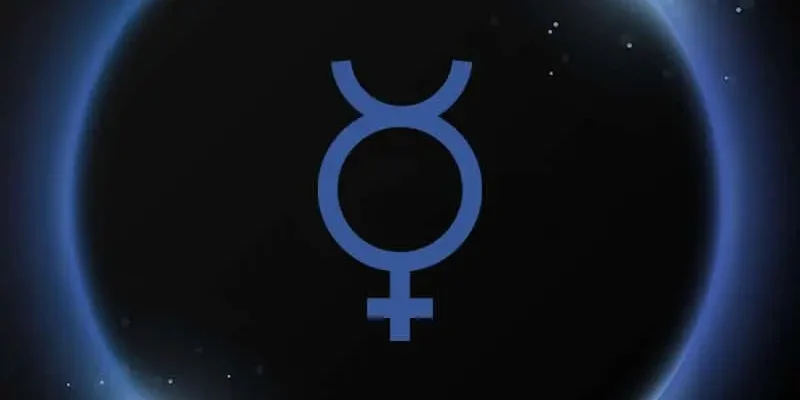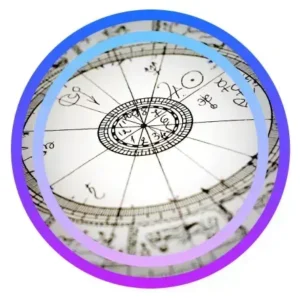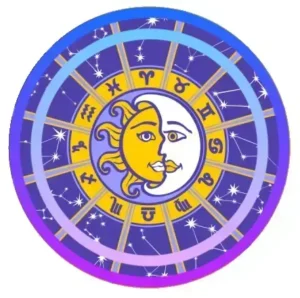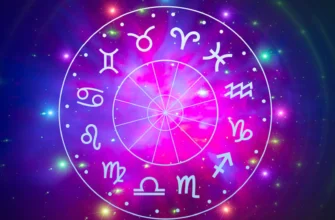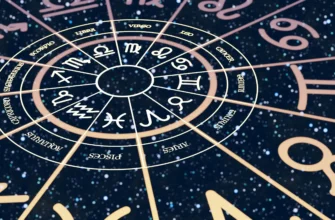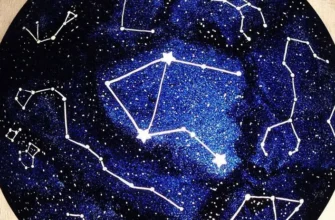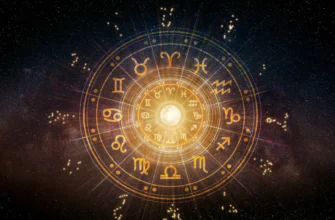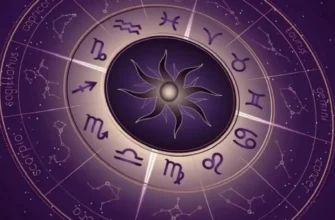Mercury square Uranus in synastry brings an electrifying mental connection—fast, unpredictable, and full of sparks. In synastry chart meaning, Mercury governs communication and logic, while Uranus represents innovation, rebellion, and sudden insight. When these planets clash through a square, conversations are stimulating but volatile. One partner may think in structured, linear ways, while the other jumps between ideas, shocks the system, or challenges assumptions. In relationship synastry, this aspect creates excitement and intellectual chemistry, yet also misunderstandings or abrupt disagreements.
It can feel like one person is speaking in lightning while the other tries to ground the storm. Still, the relationship rarely feels boring: Uranus keeps Mercury alert, inspired, and open to new perspectives. In synastry chart compatibility, Mercury–Uranus squares often appear in partnerships that transform how both people think. According to synastry chart interpretation, this aspect encourages growth through curiosity—even if chaos is part of the package.
Mercury square Uranus in synastry ultimately teaches one of relationship wisdom’s harder lessons: some minds simply don’t mesh comfortably regardless of mutual effort, good intentions, or objective rightness on either side. The aspect reveals fundamental incompatibility in thinking patterns, moral frameworks, and basic assumptions about reality that makes sustained close contact psychologically exhausting and spiritually corrosive for both people despite potentially fascinating initial encounters or specific contexts where unconventional thinking proves valuable.
The square doesn’t make either person wrong or inferior – Mercury isn’t wrong for valuing logical consistency and ethical frameworks, Uranus isn’t wrong for prioritizing freedom and innovation over conventional morality. They’re simply oriented toward reality through incompatible cognitive and ethical lenses making mutual understanding, comfortable communication, and shared decision-making extraordinarily difficult despite both possessing intelligence, good character, and valuable perspectives within their respective frameworks.
For those exploring their Synastry online connections and discovering Mercury square Uranus in significant relationships, honest assessment about relationship context and possibility for protective distance becomes essential: Can this remain casual friendship with limited contact? Must it involve daily workplace proximity or romantic intimacy requiring constant navigation of cognitive and moral friction? Does maintaining relationship require constant psychological work, moral compromise, or suppression of authentic thinking that leaves you exhausted and wondering who you’re becoming?
Mercury square Uranus means recognizing that mental rapport and values alignment aren’t superficial preferences but fundamental requirements for sustainable close relationships – without them, even love, attraction, or practical compatibility cannot prevent chronic psychological friction steadily eroding wellbeing. The aspect teaches that respecting cognitive incompatibility and maintaining appropriate distance isn’t failure but wisdom, that not every mind should attempt meshing with every other mind, and that sometimes the healthiest choice involves appreciating fascinating people from safe distance rather than attempting sustained proximity that disturbs your peace, challenges your integrity, or requires constant translation between fundamentally incompatible ways of processing reality and making meaning.
Fascination Mixed with Deep Unease
Mercury square Uranus creates peculiar psychological cocktail: genuine fascination with Uranus’s unconventional thinking mixed with profound unease about their instability, immorality, or impracticality. Mercury finds Uranus interesting, even exciting – their minds work so differently, generating ideas Mercury would never conceive, approaching problems from angles Mercury never considered, seeing possibilities Mercury’s conventional logic screens out automatically. This intellectual novelty attracts Mercury initially, promising escape from mental routines and predictable thinking patterns.
However, sustained exposure reveals darker side: Uranus’s instability means their brilliant ideas often lack follow-through or practical implementation. Their unconventionality frequently crosses into territory Mercury experiences as unethical, immoral, or socially destructive. Their impracticality creates real-world problems requiring Mercury to deal with consequences of decisions Uranus made without considering practical implications. What seemed fascinating from distance becomes disturbing upon closer examination and sustained interaction.
The business owners example illustrates this perfectly: Mercury person understood intellectually why these Uranus owners engaged in practices like buying rankings or offering bribes – competitive advantage, industry norms, practical benefits were comprehensible. However, Mercury in Sagittarius carries strong moral framework valuing honesty, integrity, and ethical behavior. Despite understanding practical rationale, Mercury experienced visceral shock at Uranus’s casual disregard for moral principles Mercury considered non-negotiable foundations of proper business conduct.
This creates ongoing internal conflict for Mercury: intellectually fascinated by Uranus’s unconventional thinking and practical results it sometimes produces, yet morally disturbed by methods, ethical frameworks, or basic assumptions underlying that thinking. Mercury cannot dismiss Uranus as simply stupid or incompetent – their approaches sometimes work brilliantly. Yet Mercury also cannot fully embrace or internalize Uranus’s perspectives without betraying their own moral compass and logical frameworks providing psychological stability and social identity.
When examining horoscope compatibility for mental rapport and comfortable communication, Mercury square Uranus indicates perpetual low-level cognitive dissonance where Mercury feels simultaneously attracted and repelled, interested and disturbed, engaged and exhausted by Uranus’s mental processes and communication style.
The Moral Values Conflict: No Right or Wrong, But Real Incompatibility
Mercury square Uranus proves particularly challenging because it typically doesn’t involve one person being objectively right and the other objectively wrong – instead, it reveals fundamental incompatibility in moral frameworks, ethical priorities, and basic assumptions about what constitutes acceptable behavior. Both people might be internally consistent within their respective value systems; they simply operate from incompatible systems that cannot be reconciled through logic, compromise, or mutual understanding.
Mercury might value honesty, transparency, playing by established rules, and maintaining ethical standards even when doing so costs money or opportunities. These aren’t arbitrary preferences – they’re deeply integrated into Mercury’s identity, self-respect, and understanding of how to maintain psychological integrity and social legitimacy. Violating these principles feels to Mercury like betraying their essential self and becoming someone they cannot respect or live with comfortably.
Uranus might value freedom, innovation, pragmatic effectiveness, and willingness to break rules serving no good purpose or merely protecting established interests from necessary disruption. From Uranus’s perspective, Mercury’s moral rigidity represents timidity, conventional thinking, or inability to recognize when rules deserve breaking because they’re unjust, outdated, or counterproductive. Uranus experiences moral frameworks as psychological prisons preventing necessary evolution and limiting possibilities to only those comfortable for conventional consciousness.
Neither person is objectively wrong within their own framework: Mercury isn’t wrong to value ethical consistency and rule-following; Uranus isn’t wrong to prioritize freedom and practical effectiveness over conventional morality. They’re simply incompatible – Mercury needs ethical certainty and moral consistency for psychological stability, while Uranus needs freedom from moral constraints and willingness to embrace uncertainty for authentic self-expression and revolutionary innovation.
This incompatibility proves irresolvable through discussion, compromise, or mutual education because it stems from different fundamental orientations toward reality itself – Mercury experiences reality through ethical and logical frameworks requiring consistency, while Uranus experiences reality through freedom and possibility requiring flexibility even when consistency suffers. Asking either person to adopt the other’s orientation requires betraying their essential nature and psychological needs.
In compatibility zodiac analysis for values alignment, Mercury square Uranus indicates fundamental incompatibility around thinking patterns, moral frameworks, and basic assumptions about acceptable behavior that makes sustained close collaboration or intimate relationship psychologically exhausting for both people despite neither being objectively wrong or morally inferior.
Workplace Context: When Your Boss Shocks Your Values
Mercury square Uranus proves particularly problematic in workplace relationships where hierarchy prevents Mercury from maintaining protective distance from Uranus’s disturbing perspectives and ethically questionable decisions. If Uranus occupies superior position – as boss, manager, or business owner – Mercury faces daily confrontation with decisions, methods, and moral frameworks they find shocking, unethical, or fundamentally wrong yet cannot simply avoid or dismiss because employment requires implementing or supporting Uranus’s directions.
The document specifically warns: if your boss’s Uranus squares your Mercury, seriously consider whether continuing this employment serves your wellbeing. The vast differences in moral values create unpleasantness at work where Mercury spends significant daily time – not just eight hours but prime waking hours when energy and attention are highest – struggling with whether they’re crossing ethical boundaries, compromising principles for paycheck, or becoming complicit in practices they consider wrong.
This internal struggle proves exhausting and psychologically corrosive: Mercury might rationalize initially (“everyone does this,” “it’s industry standard,” “I need the job”), but rationalization requires constant psychological energy suppressing internal moral alarm bells. Over time, this suppression either succeeds – Mercury adopts Uranus’s amorality, losing connection to their own ethical foundations and becoming someone they wouldn’t have respected before employment – or fails spectacularly through breakdown, sudden resignation, or whistleblowing triggered when specific incident finally overwhelms Mercury’s capacity for ongoing moral compromise.
Neither outcome serves Mercury’s long-term wellbeing: adopting Uranus’s values destroys Mercury’s psychological integrity and self-respect, while maintaining original values while working for Uranus creates chronic stress, internal conflict, and eventual crisis. The only sustainable option involves recognizing fundamental incompatibility early and seeking employment with someone whose Uranus doesn’t square Mercury’s values, allowing Mercury to work without constant ethical anguish.
When consulting a Free Synastry Chart for workplace compatibility, Mercury square Uranus between subordinate and supervisor indicates high probability of moral conflicts, communication friction, and psychological stress making long-term employment inadvisable regardless of salary, benefits, or career advancement opportunities the position offers.
Friendship Context: Tolerating Eccentricity at Safe Distance
Mercury square Uranus proves more manageable in friendship than in workplace or romantic contexts because friendship typically allows maintaining greater distance and selective engagement. Mercury can enjoy Uranus friend’s fascinating eccentricity, unconventional perspectives, and intellectually stimulating company during limited, voluntary interactions while avoiding deeper involvement in Uranus’s ethically questionable decisions or chaotic lifestyle patterns.
The friendship remains compartmentalized – Mercury appreciates Uranus’s interesting qualities during occasional social interactions but doesn’t depend on them for practical support, doesn’t involve them in important life decisions, and doesn’t expect reliability, consistency, or shared moral frameworks that close relationships require. Mercury accepts Uranus as “quirky, interesting, but unreliable friend” whose entertainment value and intellectual stimulation justify tolerating their frustrating instability and moral unconventionality during limited exposure.
This works because friendship doesn’t require the sustained daily proximity, financial interdependence, shared decision-making, or ethical alignment that marriage, business partnerships, or employer-employee relationships demand. Mercury can enjoy Uranus’s company for evening out, then return to stable life built with people whose thinking and values align more comfortably with Mercury’s own. The relationship provides novelty and mental stimulation without requiring Mercury to actually organize their life around Uranus’s chaotic energy or compromise their ethics to accommodate Uranus’s shocking perspectives.
However, even friendship has limits: if Uranus’s behavior becomes too shocking, if their ethical violations cross boundaries Mercury cannot overlook, or if casual association begins feeling like moral complicity in genuinely harmful activities, even tolerant friendship becomes untenable. Mercury might enjoy provocative ideas during abstract discussions yet withdraw when those ideas translate into concrete actions Mercury experiences as unethical, dangerous, or destructive.
In astrology and horoscope guidance for friendship compatibility, Mercury square Uranus indicates relationships that work best kept light, occasional, and compartmentalized rather than attempting deep intimacy or extensive life entanglement that would require Mercury to constantly confront and accommodate Uranus’s disturbing perspectives and ethically questionable choices.
The Mercury in Sagittarius Example: Moral Frameworks Matter
The document specifically mentions Mercury in Sagittarius possessing strong moral sense – illustrating how Mercury’s zodiac sign placement influences how severely Mercury square Uranus manifests and how disturbed Mercury feels by Uranus’s ethical unconventionality. Mercury in fire signs (Aries, Leo, Sagittarius) tends toward strong moral convictions, idealistic thinking, and belief in universal principles deserving respect and adherence. Mercury in Sagittarius particularly values truth, justice, ethical behavior, and philosophical consistency.
When such Mercury encounters Uranus whose behavior violates these deeply-held principles – engaging in deceptive practices, corrupt behaviors, or casual amorality – the square’s friction intensifies dramatically. Mercury in Sagittarius doesn’t just intellectually disagree with Uranus’s methods; they experience moral revulsion, genuine shock at someone’s capacity for ethical flexibility, and deep discomfort spending time around someone whose values contradict their own so fundamentally.
Conversely, Mercury in more pragmatic signs (Virgo, Capricorn, perhaps Gemini) might find Uranus’s unconventional methods less shocking – still uncomfortable perhaps, but more comprehensible as alternative approaches rather than moral violations requiring condemnation. Mercury in water signs (Cancer, Scorpio, Pisces) might empathize more with emotional or psychological reasons behind Uranus’s unconventional behaviors, finding them disturbing yet understandable given circumstances or psychological needs.
This means Mercury square Uranus’s severity depends partly on Mercury’s natal sign and house placement indicating their natural moral framework and thinking style. Mercury in ethical, idealistic, or rule-oriented signs experiences the square more painfully than Mercury in pragmatic, relativistic, or psychologically-oriented signs capable of understanding multiple moral frameworks without experiencing cognitive dissonance or moral crisis.
When using a Synastry Chart Calculator that shows not just aspects but also signs and house placements, examining Mercury’s natal position helps assess how disturbing they’ll find Uranus’s unconventional thinking and whether this disturbed reaction will prove manageable annoyance or dealbreaker incompatibility.
Communication Breakdown: Talking Past Each Other
Beyond moral conflicts, Mercury square Uranus creates fundamental communication difficulties where both people struggle to understand each other’s thinking processes despite speaking same language. Mercury communicates through logical sequences, moral frameworks, and conventional linguistic structures expecting listener to follow reasoning from premises through conclusions. Uranus communicates through intuitive leaps, shocking statements, deliberate provocations, and non-linear associations that conventional logic cannot trace or predict.
Mercury asks “why?” expecting logical explanation connecting cause to effect through understandable chain of reasoning. Uranus responds with “because it works” or “because rules are stupid” or simply “why not?” – answers Mercury finds frustratingly inadequate because they don’t satisfy Mercury’s need for logical coherence and moral justification. Mercury experiences this as Uranus refusing to think seriously or provide actual reasons versus mere rationalizations.
Uranus asks “why not?” expecting Mercury to recognize arbitrary nature of conventional limitations. Mercury responds with practical concerns, ethical principles, logical consequences – answers Uranus finds irritatingly conventional because they’re all based on accepting existing frameworks rather than questioning whether those frameworks deserve acceptance. Uranus experiences this as Mercury refusing to think freely or imagine possibilities beyond comfortable conventions.
Both people feel frustrated communicating with each other: Mercury feels Uranus won’t engage seriously or think through implications of their provocative ideas. Uranus feels Mercury won’t open their mind or consider genuinely revolutionary perspectives. Neither understands the other’s thinking process well enough to anticipate their reactions, predict their concerns, or frame arguments persuasively for their particular cognitive style.
This communication friction proves exhausting in sustained relationships requiring coordinated planning, shared decision-making, or emotional intimacy depending on mutual understanding. Both people must constantly translate between incompatible mental languages without reliable dictionary, creating perpetual low-level miscommunication and occasional spectacular misunderstandings when translation fails completely.
Romantic Relationship Challenges: Beyond Friendship Tolerance
While Mercury square Uranus might work adequately in casual friendship maintained at safe distance, romantic relationships requiring sustained proximity, emotional vulnerability, shared finances, and coordinated life planning amplify the aspect’s difficulties beyond tolerability for most people. Romantic partners need to understand each other’s thinking, trust each other’s judgment, share fundamental values around important life decisions, and communicate effectively about emotionally-loaded topics – all areas where Mercury square Uranus creates significant friction.
Mercury partner cannot trust Uranus partner’s judgment about important decisions because Uranus’s thinking seems unstable, impractical, or ethically questionable to Mercury. Should they buy house together when Uranus might suddenly decide conventional homeownership is oppressive and want to sell everything to live nomadically? Should they combine finances when Uranus might make shocking financial decisions Mercury considers irresponsible or unethical? Should they raise children together when Uranus’s unconventional values might teach children perspectives Mercury finds disturbing?
Uranus partner feels constantly judged, restricted, or morally policed by Mercury partner who seems unable to accept Uranus’s authentic thinking without criticism or attempts at modification. Uranus might feel they must self-censor, hide their true thoughts, or engage in exhausting performance of conventionality to avoid triggering Mercury’s moral alarm bells – creating emotional distance and resentment about inability to be fully themselves within supposedly intimate relationship.
The relationship either fractures under these tensions or survives through uncomfortable compromises: Mercury abandons their ethical frameworks to accommodate Uranus (destroying their psychological integrity), Uranus suppresses their unconventional thinking to appease Mercury (destroying their authentic self-expression), or both maintain exhausting compartmentalization where they simply avoid discussing anything touching on their fundamental thinking and value differences (preventing genuine intimacy despite physical proximity).
In Free Birth Chart analysis for romantic compatibility, Mercury square Uranus indicates significant challenges around mental rapport, values alignment, and communication ease that make satisfying long-term partnership unlikely unless other aspects provide extraordinary compensating strengths in emotional bonding, sexual chemistry, or practical compatibility offsetting the cognitive and moral friction this aspect creates.
When Distance Becomes Self-Care
For Mercury individuals discovering their Mercury squares someone important’s Uranus – whether friend, family member, colleague, or romantic partner – the healthiest response often involves consciously maintaining or creating distance rather than attempting to overcome, fix, or tolerate the fundamental incompatibility this aspect reveals. Distance isn’t failure or weakness; it’s wisdom about recognizing which relationships serve wellbeing versus which drain energy, compromise integrity, or require constant psychological management preventing authentic relaxation or self-expression.
Distance might mean: limiting friendship to occasional social interactions rather than deep intimacy or extensive life entanglement. Keeping family relationship cordial but boundaried rather than attempting closeness requiring tolerance of disturbing perspectives. Seeking new employment rather than enduring workplace where boss’s thinking shocks your values daily. Ending romantic relationship rather than spending years hoping partner will eventually think more like you or accepting that they never will while psychological friction steadily erodes your wellbeing and self-respect.
This distance protects both people: Mercury avoids chronic stress, moral compromise, and cognitive dissonance from constant exposure to thinking they find disturbing. Uranus avoids constant criticism, judgment, and pressure to think more conventionally to satisfy Mercury’s comfort needs. Both can appreciate whatever positive qualities drew them together initially without those qualities being overshadowed by fundamental incompatibility around thinking and values making sustained proximity psychologically costly for both.
The challenge involves recognizing that creating distance doesn’t require proving the other person is bad, wrong, or inferior – they’re simply different in ways making sustained close contact uncomfortable regardless of either person’s objective moral superiority. Mercury isn’t wrong to value ethical consistency; Uranus isn’t wrong to prioritize freedom and innovation over conventional morality. They’re incompatible – and recognizing incompatibility early allows both people to redirect energy toward relationships built on more compatible mental processes and shared value frameworks.

